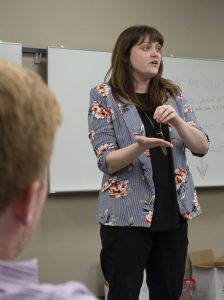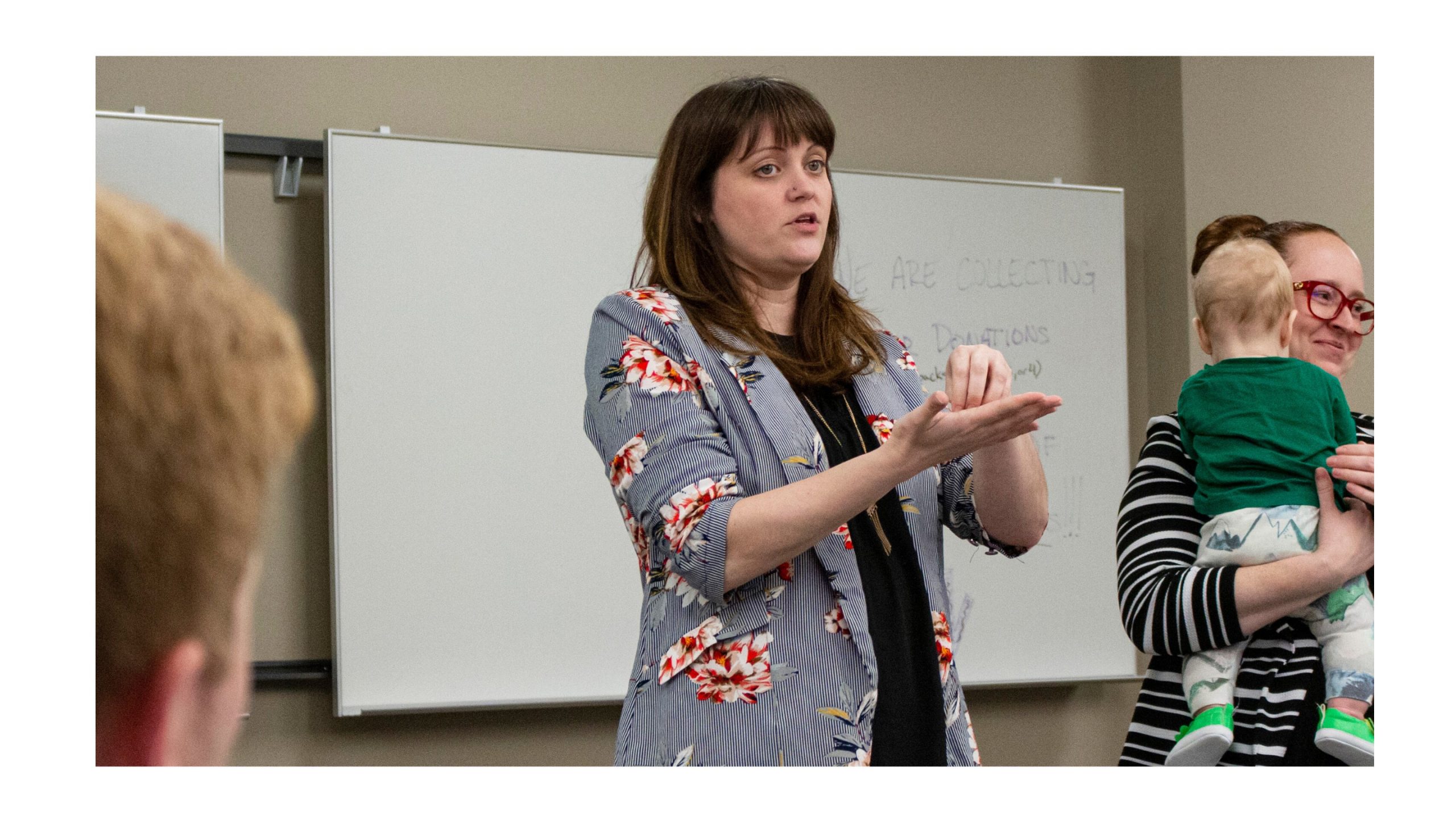Doctoral students beginning mixed-methods study with focus on women
March 12, 2020
By David Miller

Haley Beech, PhD student in the UA School of Social Work, details the work she and fellow PhD student Amber Sutton have done in Perry County during a recent presentation at the Student Community Engagement Center.
TUSCALOOSA, Ala. – University of Alabama School of Social Work doctoral students Amber Sutton and Haley Beech are combining their research interests of maternal health and intimate partner violence to help strengthen the population of one of Alabama’s poorest counties.
Sutton and Beech are currently working with Sowing Seeds of Hope, a non-profit organization in Perry County, on a community-based participatory research project that will provide a broad range of data in areas, such as domestic violence, to better inform policy and services decisions in Perry County. The pair are diving deeper beyond current statistics to fill gaps and provide more accurate data; for instance, the true number of domestic violence victims is hard to know because the FBI’s data only includes reported cases, Sutton said.
“So, we are missing the victims that don’t report,” Sutton said. “There are a lot of other factors going on, and there’s a huge gap in the literature, especially from a social work perspective.”
Beech and Sutton, through the help of Sowing Seeds of Hope’s Executive Director, Frances Ford, and Director of Communications and Special Projects, Susan Jones, have created a mixed methods study to do survey data and follow-up data through interviews. The process has been “challenging,” Beech said, but they’ve gained IRB approval and will begin data collection in May.
Beech and Sutton shared the details of the study Tuesday at the Student Community Engagement Center on UA’s campus. Their talk included logistics in recruiting participants and the incentives they could offer – they received donations of diapers on Tuesday – along with the “required cultural humility to let the people there determine what was best for their community,” Beech said.
“Knowing these areas around the state, we started asking questions about lack of services and intimate partner violence and started to contribute our expertise,” Beech said. “We asked if they’d be interested in partnering, because there are limited services available in the community.”
“So, we began to envision how we would gather that information. There was a community domestic violence training for community members, and we were able to understand what was being taught and was able to make partnerships. We had follow-up meetings and continued conversations and saw an opportunity to do a deeper dive into an area that affects the entire state, but especially poor areas.”
The bigger picture, Beech says, is capacity-building for Perry County, where a significant portion of the population lives below the poverty line. Additionally, the county has been without a hospital for more than 20 years.
“The initial data will probably be more than what we wanted to know, but it will help Sowing Seeds of Hope and Perry County to determine next steps – do they table some things? Do they Move forward with certain projects?” Beech said. “We’re trying to help the community make informed decisions for their population.”
